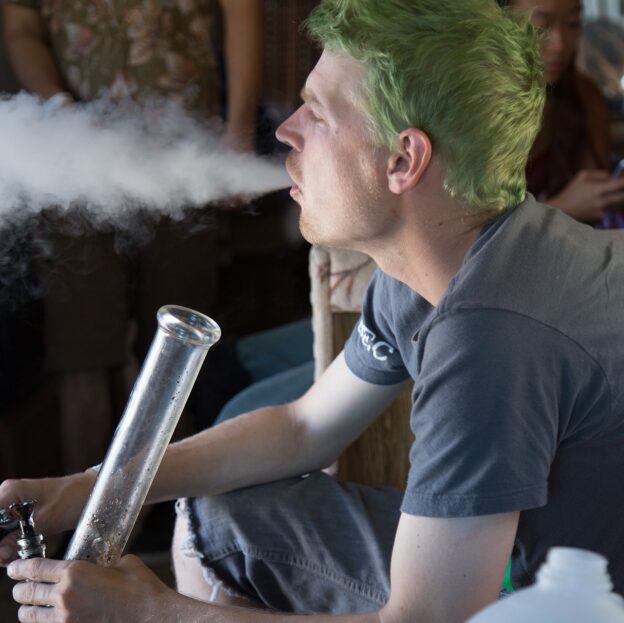More and more mental health professionals are now warning about cannabis-induced psychosis and its impact on young people. While cannabis (aka marijuana), is a commonly used recreational drug, it has gained increased attention due to its potential impact on mental health and brain development in younger people.
I’d like to delve further into cannabis-induced psychosis, how it affects young individuals, and why it is a matter of concern.
Cannabis-Induced Psychosis: A Brief Overview
Psychosis is characterized by a significant departure from reality. Common symptoms include hallucinations, delusions, disorganized thinking, and impaired insight. Cannabis-induced psychosis is a subtype of psychosis triggered by the use of cannabis.
Who Is Most Vulnerable?
Young people, particularly adolescents and young adults, are more vulnerable to cannabis-induced psychosis due to ongoing brain development. Research suggests cannabis use during this critical period can disrupt normal brain growth and function, potentially increasing the risk of mental health issues.
Moreover, individuals with certain genetic predispositions or a family history of mental illness may be at higher risk. The potency and frequency of cannabis use, as well as the age of initiation, also play significant roles in the development of cannabis-induced psychosis.
The Experience of Cannabis-Induced Psychosis
For young individuals who experience cannabis-induced psychosis, the symptoms can be deeply distressing. They may find themselves in a state of extreme anxiety, paranoia, confusion, and agitation. Hallucinations and delusions can be terrifying, as they may struggle to distinguish between what is real and what is not.
Impact on Young Lives
Cannabis-induced psychosis and its impact on young people can have far-reaching consequences. The acute phase of psychosis may last for a few days to several weeks, during which individuals often require intensive care and treatment. Even after recovery, some may continue to experience lingering psychological effects or remain at an increased risk of developing long-term psychotic disorders.
Treatment and Recovery
The primary treatment for cannabis-induced psychosis involves discontinuing cannabis use and addressing acute symptoms. In severe cases, hospitalization may be necessary to ensure the individual’s safety and provide appropriate care. Long-term treatment often involves therapy and support for managing any underlying mental health conditions.
Prevention and Education
Preventing cannabis-induced psychosis in young people involves education and abstinence. Providing clear information about the potential risks associated with cannabis use, particularly for those with a family history of mental illness, is crucial. Harm reduction strategies, such as using lower-potency cannabis products and avoiding early and frequent use, can help reduce the risk.
Conclusion
While cannabis-induced psychosis is relatively rare, it is a significant concern for young individuals, given their vulnerability during brain development. Understanding the potential risks associated with cannabis use and promoting responsible consumption is essential.
Education about the impact of cannabis-induced psychosis on young people, including early intervention and support, is critical to safeguarding the mental well-being of young people. Especially those who may be at risk of developing cannabis-induced psychosis.
If you or someone you know is struggling with this issue, seeking help from a healthcare professional is imperative to ensure timely and appropriate care. Awakenings Treatment Center, located in Agoura Hills, California, offers many programs that can support them to leave cannabis aside to protect their mental health so they can continue to grow and flourish.








